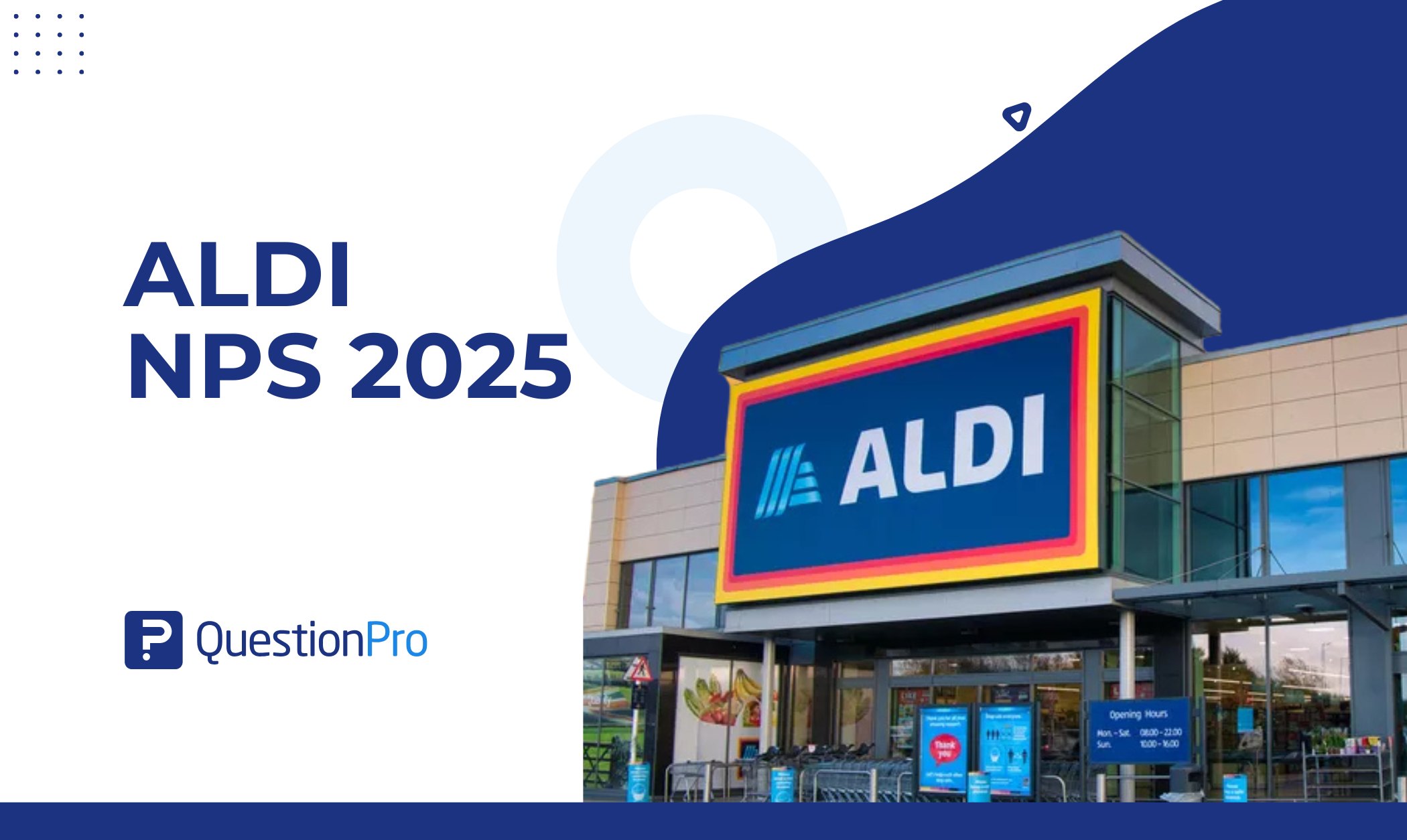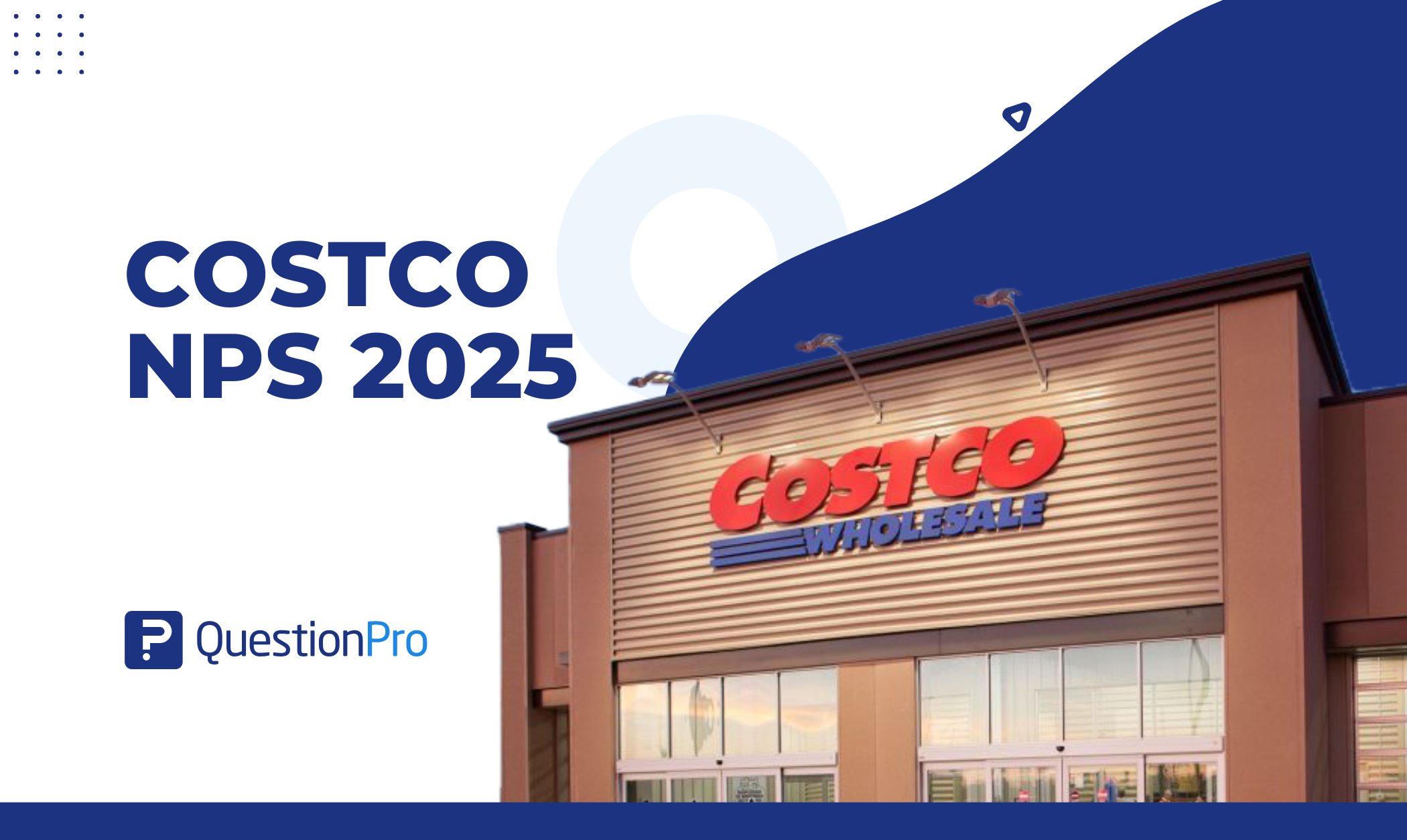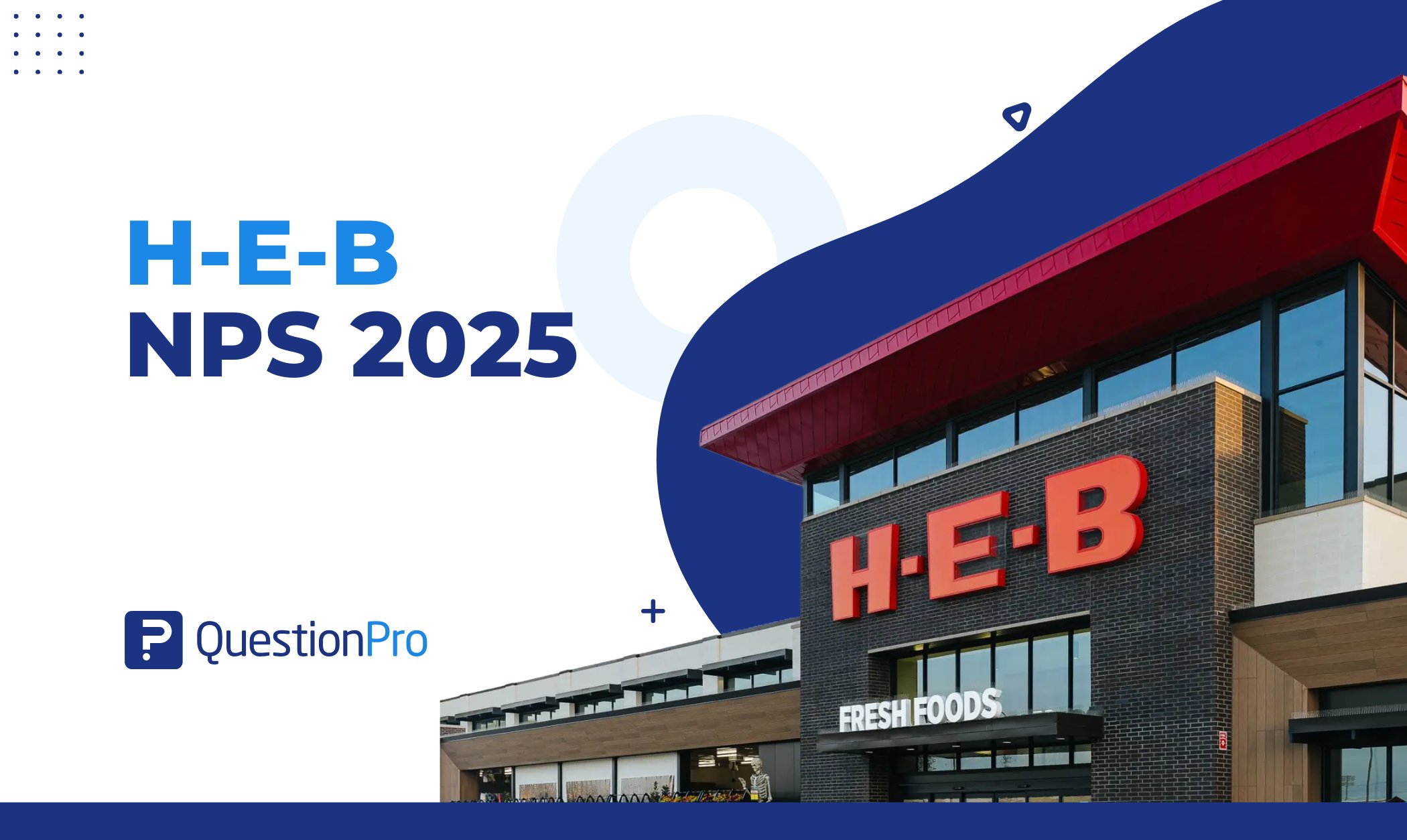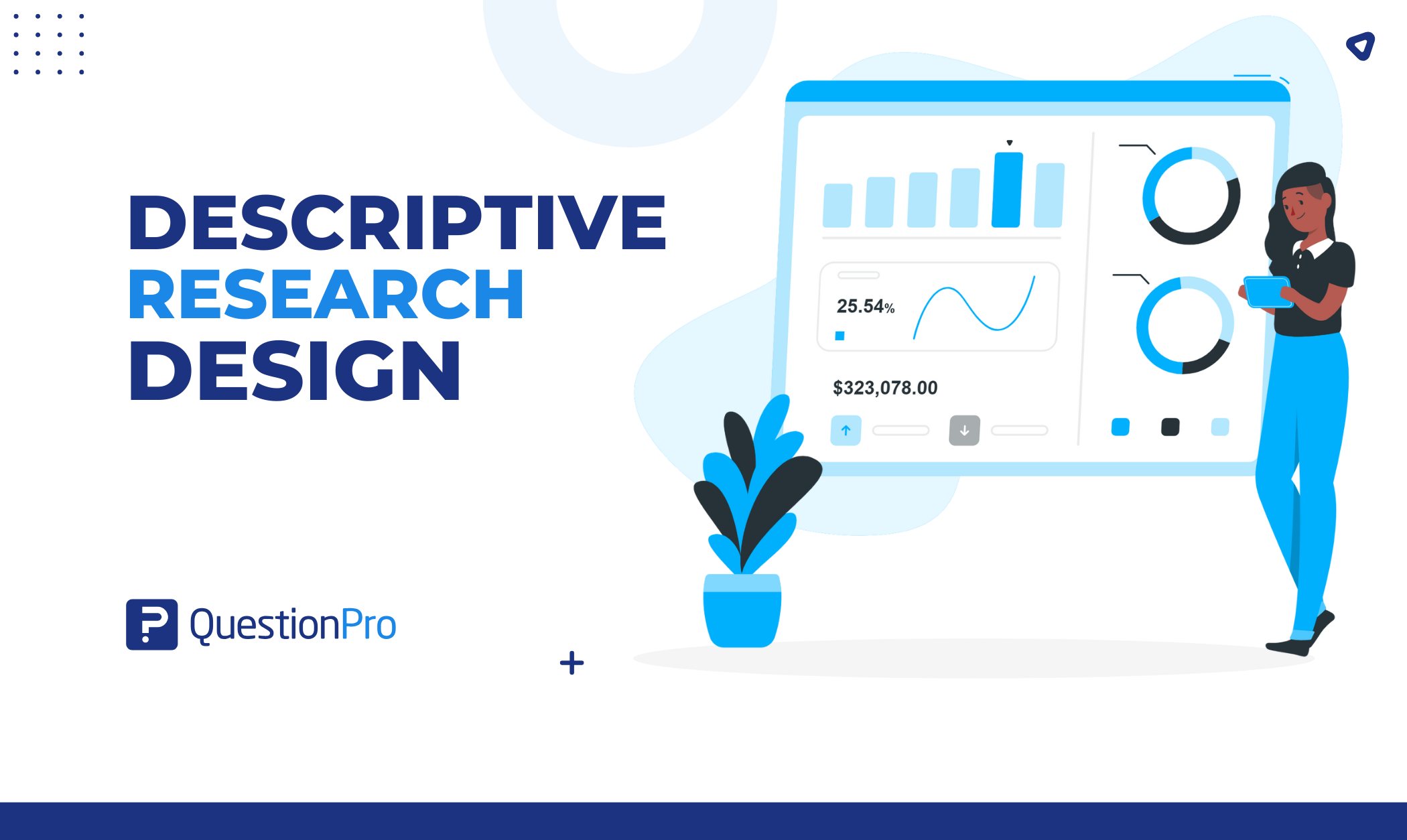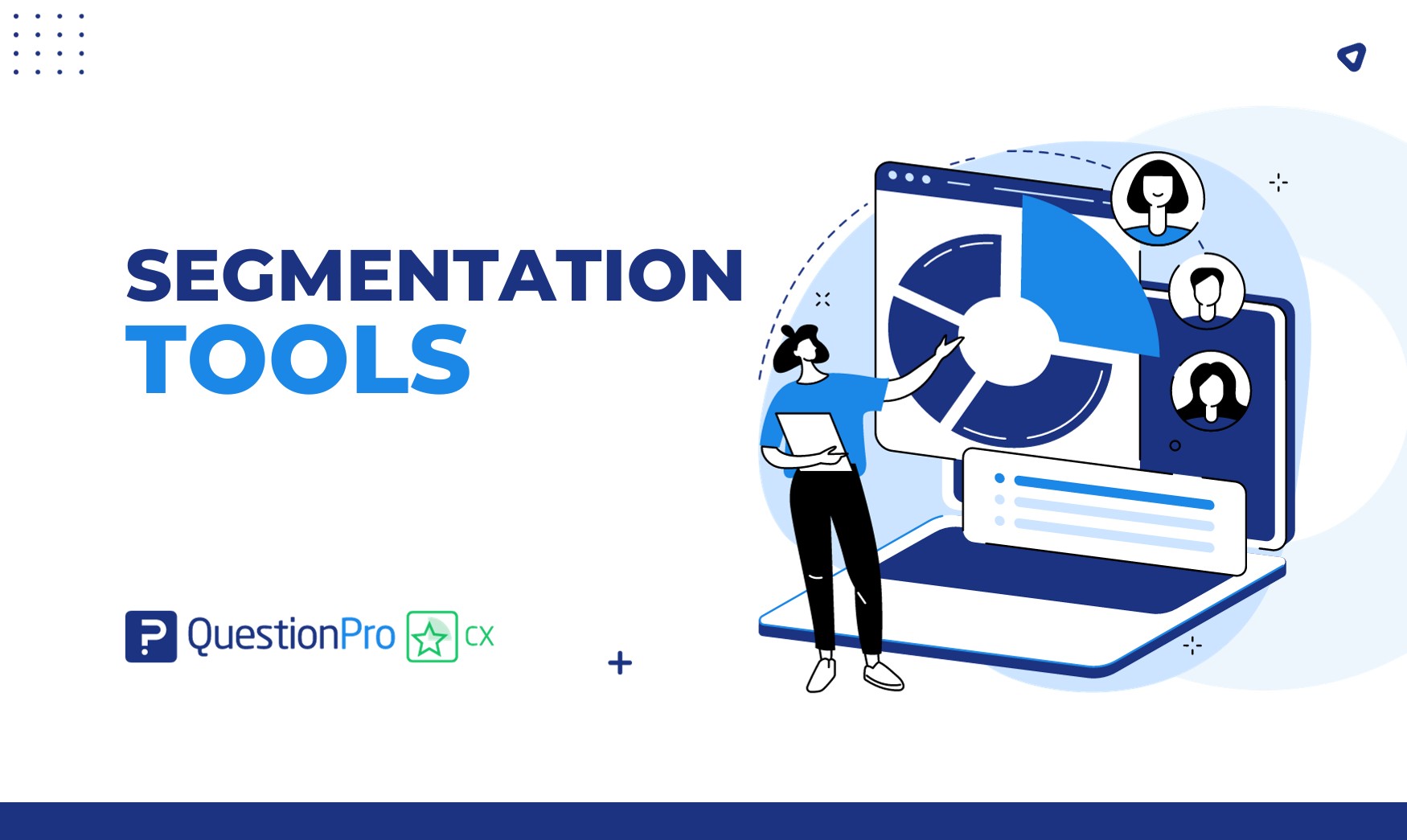
Understanding your customers is the bedrock of successful business strategies, and customer segmentation tools are the key to unlocking that understanding. It’s not just about sorting data; it’s about tailoring experiences.
The customer segmentation process is like putting puzzle pieces together. It’s when a company groups its customers based on common characteristics. By doing this, businesses can offer tailored experiences, creating products and marketing that resonate with each group’s needs. It’s the art of understanding your audience in finer detail.
Let’s take a closer look at the top 10 segmentation tools that are making waves in 2025. These tools will help businesses connect with their audience in smarter and more personalized ways.
What is Customer Segmentation?
Customer segmentation is when a company groups its customers based on their common characteristics.
These things could be how old they are, what they like, or how they use a product. The idea is to understand each group better so businesses can offer them things they’re more likely to want. It helps companies make products and marketing that people really like and want to buy.
Learn more about customer segmentation, its types & segmentation tips.
What is a Customer Segmentation Tool?
A customer segmentation tool is a special software or system that businesses use to organize and categorize their customers into different groups. It looks at things like what customers buy, how often they use a product or other common traits. By doing this, the tool helps businesses understand their customers more deeply.
Think of it like sorting people into different teams based on what games they like to play. Each team has its own preferences and interests. Similarly, with customer segmentation tools, businesses can create personalized experiences for each group.
This could include tailoring marketing messages, creating specific product features, or offering promotions. These are more likely to appeal to each group’s unique needs and interests. Ultimately, it’s a smart way for businesses to connect better with their customers.
Benefits of Customer Segmentation Tools
Customers have unique wants and pain spots, and each experiences your product differently. The most effective strategy to address these variances is to divide them into specific customer segments. Customer Segmentation software can be an effective strategy to boost customer retention and attract potential customers.
Leveraging customer segmentation tools helps businesses better understand and connect with each customer. By treating customers more personally and meeting their specific needs, companies can be more effective in their marketing efforts. More benefits of customer segmentation are given below:
01. Customer Segmentation Tools Keep Customers Happy
When you focus on your current customers, they feel valued. Customer segmentation lets you send personalized messages, making it easier to keep your existing customers happy and satisfied. The segmentation tools can help you with:
- Personalize marketing messages and offers to match customer preferences and behaviors.
- Relevant communications that are timely and pertinent to their needs.
- Address customer concerns more effectively based on segmented insights.
- Providing targeted promotions and discounts that align with customers’ purchasing habits.
- Creating a smoother, more personalized shopping experience based on segmented data.
02. Segmentation Tools Make Your Brand Known
Sorting your customers helps them learn more about your brand. This effort builds a good reputation and makes your brand more recognized and trusted. Customer segmentation tools can help make your brand known by:
- Targeted marketing campaigns to specific segments.
- Delivering personalized customer experiences.
- Addressing specific needs and preferences.
- Focusing resources on high-potential segments.
- Meeting customer expectations.
03. Customer Segmentation Software Strengthen Customer Relationships
Segmentation improves how well you know your customers. Talking to them more helps you understand their preferences and needs. Customer segmentation tools strengthen customer relationships by:
- Sending relevant messages at the right time through preferred channels.
- Providing personalized experiences that meet individual needs.
- Encouraging interactions through targeted campaigns and relevant content.
- Enhancing loyalty by understanding and fulfilling unique customer needs.
- Anticipating future needs and behaviors through data-driven analysis.
04. It can Help to Set the Right Prices for Your Products
By organizing customers based on their spending habits, you can figure out how much they can afford. This helps you understand their social and financial situation. Customer segmentation tools can help set the right prices by:
- Identifying Price Sensitivity
- Segment-Specific Pricing Strategies
- Optimizing Product Bundling
- Competitive Analysis
- Market Positioning
05. Customer Segmentation Software Helps to Improve Distribution
Knowing the number of customers helps you choose the best way to distribute your products or services. Customer segmentation tools can help improve distribution in several ways:
- By identifying high-demand segments, businesses can stock relevant products more effectively.
- Understanding geographic and behavioral patterns helps streamline delivery routes and reduce distribution costs.
- Segment-specific preferences guide decisions on which channels (online, retail, etc.) to prioritize for each segment.
- Better matching of products to customer preferences minimizes excess inventory and returns.
06. Segmentation Tools can Help to Advertise Effectively
Identifying the right customers for a specific ad campaign lets you meet their specific needs. This boosts their chances of positively responding to your ads and makes your advertising more effective. Customer segmentation software can help you to advertise effectively by:
- Targeted messaging
- Creating personalized ads
- Fine-tuning ad campaigns
- Minimizing wastage by avoiding irrelevant ads
- Improving customer satisfaction through relevant and timely advertising
- Designing promotions and offers matching with buying behaviors of each segment.
Features of Customer Segmentation Software
Customer segmentation software comes with various features that are designed to help businesses understand the diverse needs of their customer base. Here are some key features:
Organized Information
Good customer segmentation software keeps all your customer details, from subscriptions to sign-in dates, in an orderly manner. Organizing information ensures a clear understanding of your customers’ traits.
Customization for Your Needs
A great customer segmentation software allows you to tweak metrics, such as customer satisfaction, for specific customer groups. This customization is crucial as you learn and gain more customer experience in the segmentation process.
Easy Visibility
Customer segmentation software should provide clear visibility, offering easy access to all your data. This ensures that you can quickly retrieve information, facilitating improvements in your marketing strategies.
Scalability for All Sizes
Good customer segmentation software is user-friendly and suitable for both small and large businesses. It is designed to be robust enough to adapt and grow with your company as it expands over time.
Top 10 Customer Segmentation Tools to Try in 2025
Understanding and connecting with your audience is the cornerstone of successful marketing. Let’s explore the top 10 customer segmentation tools that are set to make waves in 2025.
01. QuestionPro: The best customer segmentation software
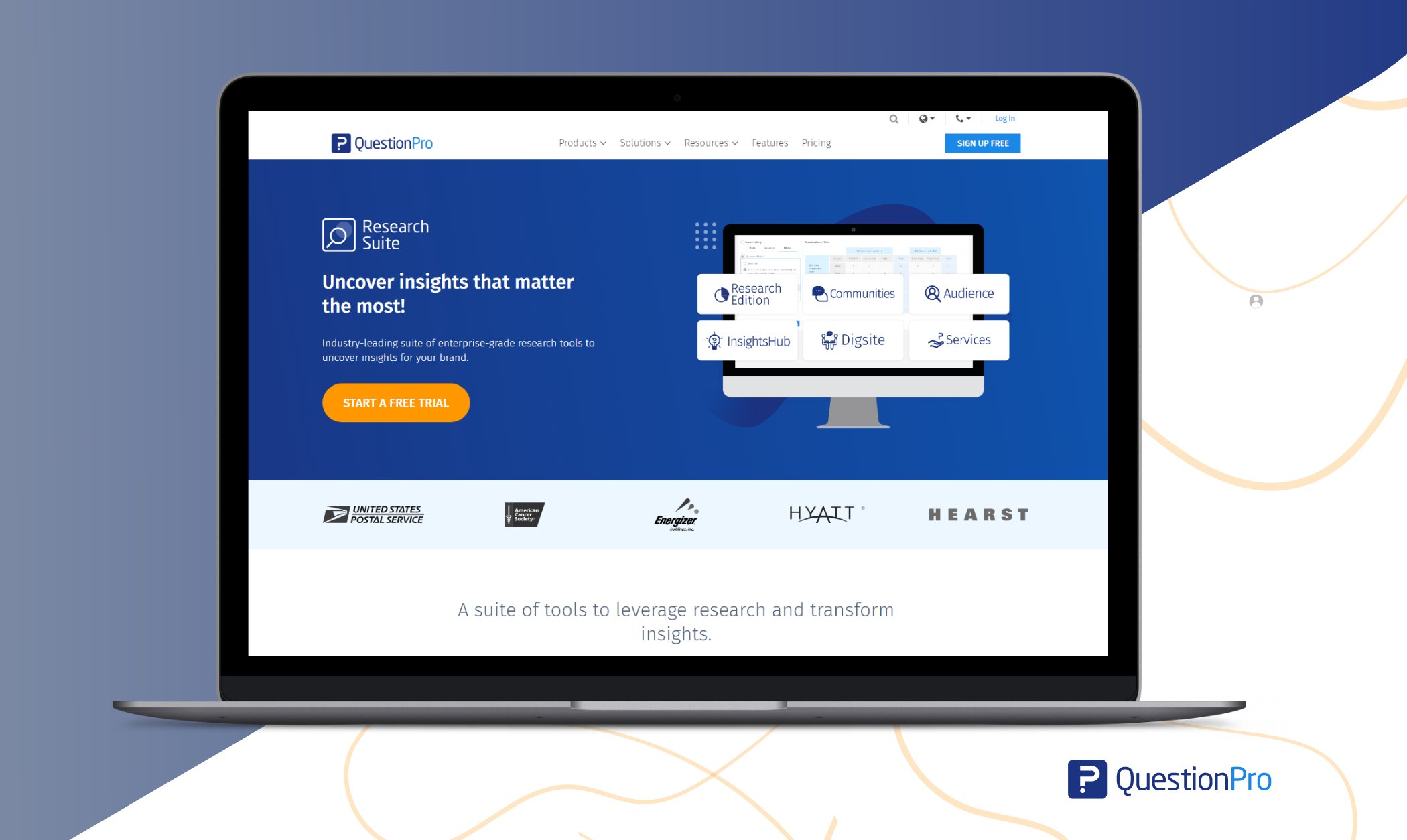
QuestionPro, primarily known as an online survey and research platform, extends its capabilities to serve as the best customer segmentation software. It is designed to help businesses understand and categorize their audience. QuestionPro enables users to segment data and gather insights into specific groups or demographics.
Best Features:
- Demographic segmentation
- Advanced question types
- Data analysis tools
- Customized surveys for segmentation
- QuestionPro facilitates A/B testing
Pros:
- Robust analytics tools and reporting features
- Offers an intuitive and user-friendly interface
Cons:
- Limited customization in the free plan
Pricing: Starting price $99 per month
02. Google Analytics
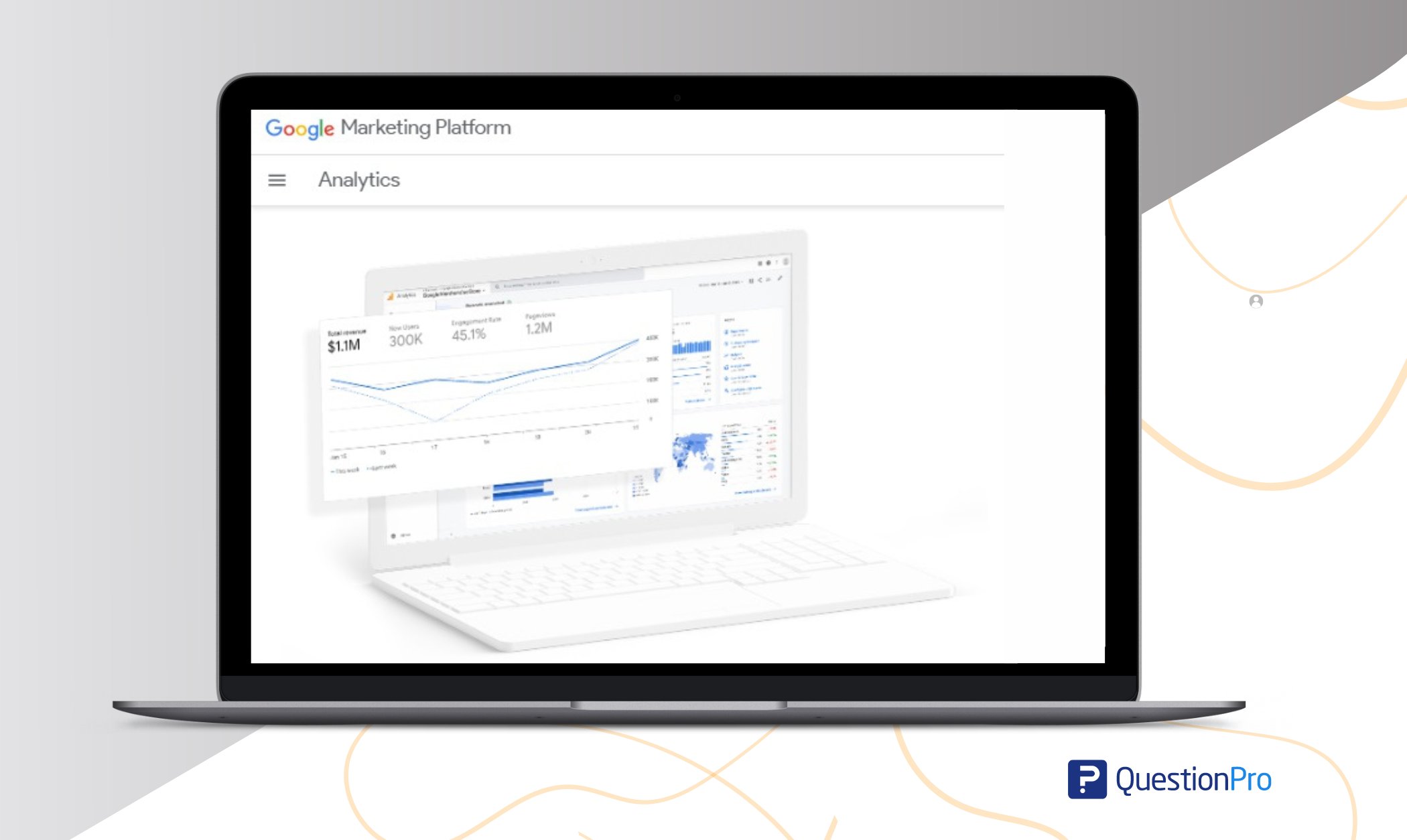
Google Analytics is a foundational web analytics tool that offers comprehensive insights into website and app performance. It is widely used to track user behavior, analyze traffic sources, and provide robust customer and market segmentation features to help businesses better understand their audience.
Best Features:
- Audience segmentation based on various factors
- Event Tracking for tracking specific user interactions
- E-commerce segmentation
- Integration with Google Ads
Pros:
- Google Analytics is accessible to businesses of all sizes
- Seamless integration with other Google services
Cons:
- The free version of Google Analytics may have limitations on accessing historical data.
Pricing: Free
03. Adobe Analytics
Adobe Analytics is a comprehensive analytics solution that goes beyond standard web analytics. It provides advanced segmentation features, enabling businesses to better understand their audience and optimize digital experiences.
Best Features:
- Advanced segmentation
- Customer journey analysis
- Integration with Adobe Marketing Cloud
Pros:
- Adobe Analytics provides robust segmentation capabilities.
- Adobe Analytics offers powerful reporting tools
Cons:
- Some users may find the interface complex.
Pricing: Contact Adobe Analytics for pricing
04. Mailchimp
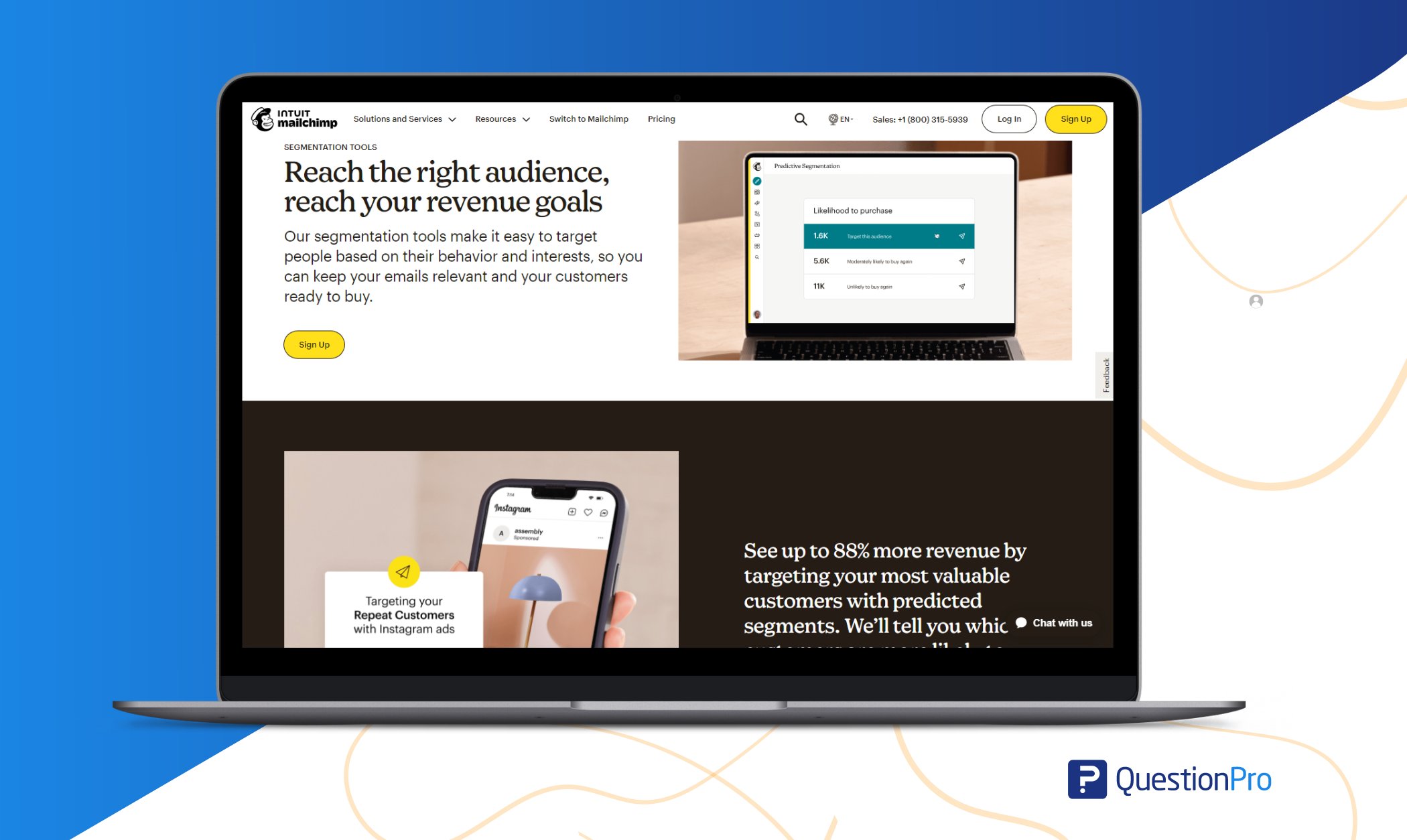
Mailchimp started as a famous tool for sending emails, but now it’s grown into a powerful marketing platform. It has strong segmentation tools that help businesses understand and reach their audience better. With Mailchimp, users can easily make customized marketing campaigns based on different factors.
Best Features:
- Behavioral segmentation
- E-commerce segmentation
- Mailchimp facilitates A/B testing
Pros:
- Seamless integration with popular e-commerce platforms
Cons:
- Limited advanced segmentation
Pricing: Starting price $6.50 per month
05. Segment
Segment is a robust customer data platform and segmentation tool designed to streamline data collection, integration, and activation. It serves as a central hub for businesses to gather and manage customer data. It provides actionable insights and facilitates targeted interactions.
Best Features:
- Customer segmentation analysis
- Segment aggregates data from various sources
- Extensive integration ecosystem
Pros:
- Segment supports over 300 integrations
Cons:
- Setting up a segment, especially for new users, may initially pose some complexity.
Pricing: Contact Segment for custom pricing
06. UserPilot
UserPilot is a versatile customer segmentation software designed to enhance user experience and engagement. It empowers businesses to create targeted customer segments based on in-app behaviors, roles, and journey stages.
Best Features:
- Advanced customer segmentation
- Custom Event Tracking to track specific feature usage, clicks, or interactions
- A/B Testing
- In-app surveys and feedback
Pros:
- Offers a versatile range of segmentation options.
- The tool’s code-free integration simplifies the onboarding process.
Cons:
- Some users may take time to understand and utilize all the features fully.
Pricing: Pricing starts from $249 monthly
07. Qualtrics
Qualtrics is a comprehensive experience management platform that extends its capabilities to serve as a robust segmentation tool. It is designed to help businesses gather and analyze customer insights. Qualtrics enables precise audience segmentation to enhance decision-making and improve overall customer experiences.
Best Features:
- Advanced survey and feedback options
- Dynamic segmentation
- Integration with CRM systems
Pros:
- Qualtrics offers powerful analytics and reporting tools
- Offers Cross-Channel data collection system.
Cons:
- Some users may experience a learning curve
Pricing: Contact Qualtrics for pricing
08. Baremetrics
Baremetrics is a subscription analytics and segmentation tool designed to provide businesses with insights into their subscription-based revenue streams. It focuses on helping companies understand and optimize their subscription metrics. Baremetrics offers robust segmentation features to analyze customer data for strategic decision-making.
Best Features:
- Customer segmentation for revenue analysis
- Offers a full live demo version of the product
- customizable reports and dashboards
Pros:
- Easy setup process
- It offers a detailed understanding of how users contribute to the company’s growth.
Cons:
- Users may encounter a learning curve when exploring advanced features.
Pricing: Starting price start from $108 monthly
09. HubSpot
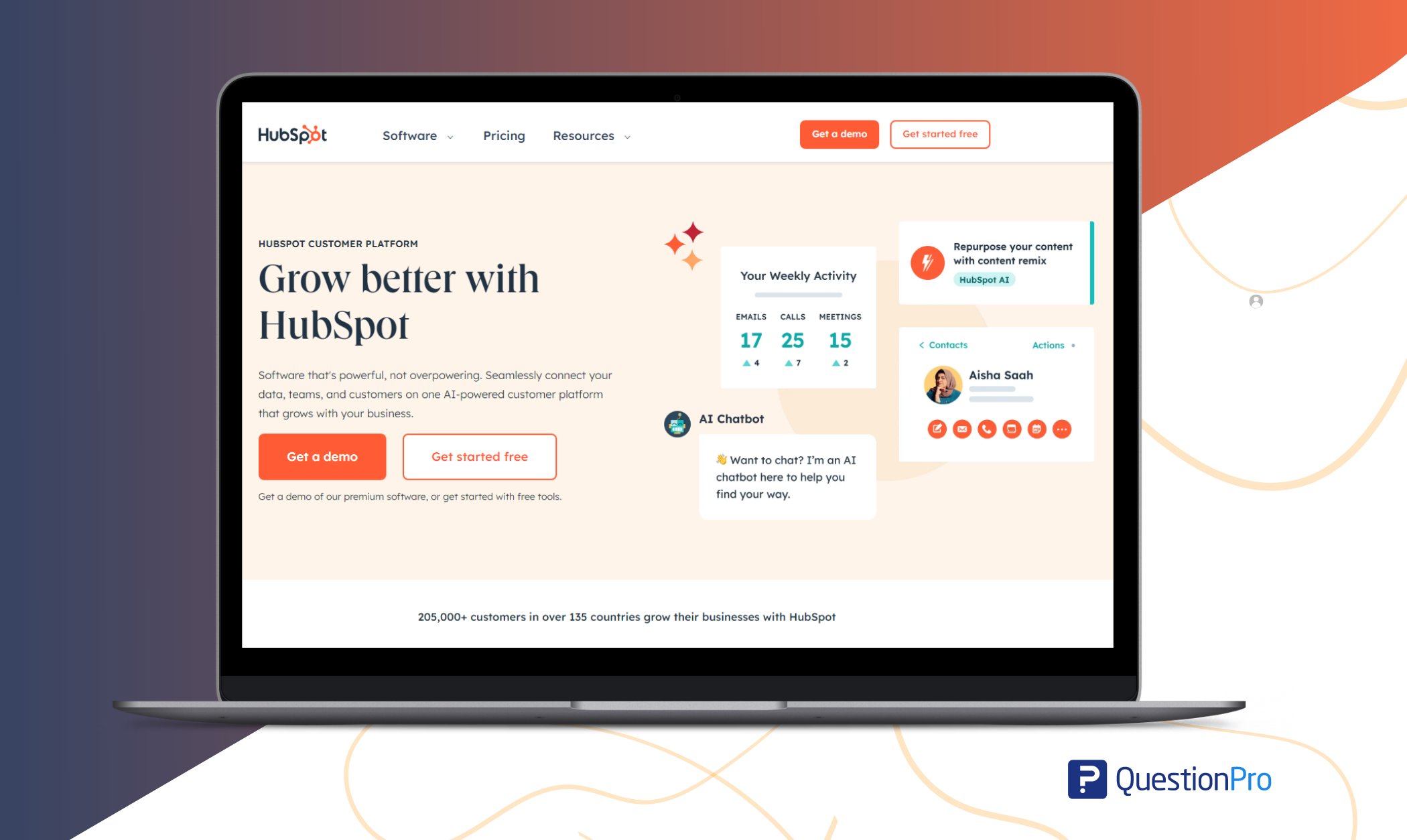
HubSpot is a comprehensive customer relationship management (CRM) platform that extends its capabilities to serve as a powerful customer segmentation tool. It is designed to facilitate personalized and targeted marketing efforts. HubSpot allows businesses to organize and analyze customer data to enhance engagement and improve overall customer experiences.
Best Features:
- Smart Lists for dynamic segmentation
- Behavioral segmentation
- Integration with marketing automation
- Lead Scoring for prioritization
Pros:
- HubSpot offers a unified platform for CRM, marketing, and sales
- HubSpot provides extensive educational resources, including tutorials, documentation, and a supportive community
Cons:
- Users may experience a learning curve when implementing segmentation strategies.
Pricing: The starting price begins at $18 monthly.
10. Sprout Social
Sprout Social is a well-known social media management platform that extends its capabilities to serve as an effective segmentation tool. It is designed to help businesses manage and analyze their social media interactions.
Best Features:
- Audience segmentation.
- Advanced Analytics for Audience Insights
- Team collaboration and assignment
- Customizable social inbox
Pros:
- It offers a centralized hub for managing social media interactions
- Comprehensive social analytics
Cons:
- Some of the advanced features and analytics tools may be available in higher-tier plans.
Pricing: The starting price is $249 per month
Why Choose QuestionPro as Your Customer Segmentation Tool?
Understanding your customers is like having a superpower in the business world. It’s the key to delivering what they want and creating successful products and marketing. If you’re on the lookout for a tool to help you unravel the mysteries of your customer base, look no further than QuestionPro.
QuestionPro is one of the best customer segmentation tools you can choose. Let’s take a stroll through why QuestionPro is the perfect choice for simplifying customer segmentation.
01. User-Friendly Interface
QuestionPro offers a user-friendly interface, making data segmentation accessible and easy for users of all levels of expertise. Navigating through the platform is intuitive, ensuring a smooth experience in creating customer segments.
- Intuitive, drag-and-drop interface for effortless data segmentation.
- Easy navigation with clear, user-friendly design.
02. Dynamic Filtering
QuestionPro enables dynamic filtering, ensuring flexibility in segmentation. This means you’re not stuck with the same way of sorting them all the time. If things like what your customers like or how they behave change, you can quickly adjust the groups to keep up with those changes. It’s like having a flexible system that adapts to your customer’s actions without any rigid rules holding you back.
03. Seamless Integration with Advanced Tools
The platform seamlessly integrates with advanced analysis tools like Trend and TURF Analysis. This integration with various third-party analytics and CRM platforms enhance the depth of data analysis. It provides businesses with more meaningful insights into their customer data.
04. Real-Time Adaptability
The dynamic segmentation offered by QuestionPro ensures businesses can adapt to evolving customer dynamics. This real-time adaptability is crucial in responding promptly to customer behavior and preference changes.
05. Powerful Analytics and Reporting
QuestionPro has powerful tools that help you understand your data better. You can easily see the results of your surveys, get useful insights, and make smart decisions using the detailed analysis features. It’s like having a toolbox full of instruments that turn raw data into valuable information. It also helps you make informed choices for your business.
06. Flexibility During Data Collection
QuestionPro gives you the freedom to create data filters whenever you need, not just during the survey setup. This flexibility means you can adapt and organize your data as your customers’ behaviors change over time. It’s like having a tool that adjusts to your needs. It ensures your segmentation stays relevant and effective.
- Freedom to create and modify data filters throughout the data collection process.
- Adaptive segmentation capabilities that ensure relevance over time.
07. Consideration of License Level Limitations
In QuestionPro, Users receive details about the restrictions on the total number of filters based on their license level. This openness empowers businesses to make well-informed decisions aligned with their subscription type.
Conclusion
Understanding your customers is no longer a luxury but a necessity for business success. The right customer segmentation tools have become the go-to solution for unraveling the complexities of consumer behavior.
In our exploration of the top 10 segmentation tools in 2025, each platform offers unique features and advantages to help businesses connect with their audience in more personalized ways. Among them, QuestionPro shines as a standout choice.
With its user-friendly interface, QuestionPro simplifies data segmentation for users of all levels. Real-time adaptability and dynamic filtering empower businesses to stay agile in response to changing criteria.
The seamless integration with advanced tools and powerful analytics ensures meaningful insights into customer data. Choose QuestionPro and unlock the superpower of customer understanding for your business success with a Free Trial.
Frequently Asked Questions (FAQs)
You should look for software that offers strong survey creation and data integration capabilities, advanced analytics for segmentation, visualization tools, scalability, and the ability to generate actionable insights.
Segmentation tools analyze large datasets using algorithms to identify patterns and similarities among customers. These tools then categorize customers into segments based on predefined criteria.
Using customer segmentation tools can lead to more targeted marketing campaigns, improved customer retention, increased sales, better resource allocation, and enhanced overall business efficiency.
Yes, customer segmentation software can be beneficial for businesses of all sizes, from startups to large enterprises, as long as they have sufficient customer data to analyze and utilize.
Consider factors such as your specific segmentation needs, budget, ease of use, integration capabilities, customer support, and scalability when choosing a customer segmentation software.




